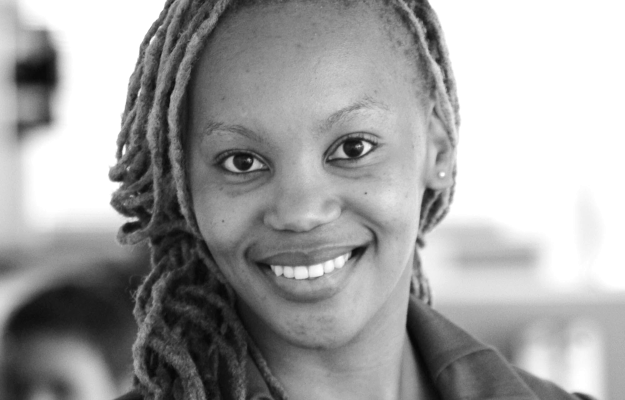
- Through SuperSport, MultiChoice has a monopoly on sports broadcasting rights in South Africa.
- The growth and global expansion of Netflix and Amazon Prime mean consumers have easier access to alternative premium channels.
- With sports content unlikely to be back at full capacity until next year, MultiChoice will need to find other ways to lock in premium subscribers.
Last week brought the much-anticipated return of live sport onto our screens. The most mentionable of these is the Premier League.
To football fans, this was met with much rapture, but none could be as happy as MultiChoice, which owns SuperSport. Through it, MultiChoice has a monopoly on sports broadcasting rights in South Africa.
For MultiChoice, the most expensive content to provide on DStv is live sports content as the distribution rights to these cost billions of rand. Certain sporting content remains exclusive to the premium bouquet.
Many would agree that you only get the premium bouquet for the sports channels. The additional utility from the non-sporting content does not justify the premium paid, especially when there are alternatives.
Looking at the revenue generated by MultiChoice across the different segments, sport is likely the reason why the average revenue per user from premium bouquets is almost double that of mid-market or compact bouquets. The exclusive nature of certain broadcasting rights is the reason why having SuperSport is the only way to view live games.
The biggest talking point coming from MultiChoice's latest financial results was the announcement the company had concluded distribution agreements with Netflix and Amazon, with the two services being made available on the next DStv decoder.
The capitulation is a defensive move, as Netflix content dwarfs that of Showmax. However, there is likely more to it than just a "streaming war".
Over the years, MultiChoice has been bleeding its premium customer base. Many measures have been put in place to curb this.
For example, a few years ago subscribers could upgrade and downgrade at their leisure during the month, but this resulted in subscribers upgrading for a chosen sporting game or programme then immediately downgrading, as billing is on a pro-rata basis. Stricter measures were then put in place to curb this outflow of revenue as the flexibility they afforded subscribers hurt the bottom line.
Downgrades are now only allowed at the end of the billing cycle. When providing a month-to-month subscription service, retaining subscribers is the biggest risk to the business model.
Although MultiChoice cannot lock subscribers in for longer than a month, they can at least keep them on their current package till the end of the billing cycle. There were efforts to lock in subscribers for 24 months with a purchase of the Explorer decoder through a payment plan, however, this was not successful. So, the biggest challenge is locking in subscribers through content.
This brings me to the competition in the online streaming industry.
The growth and global expansion of Netflix and Amazon Prime mean consumers have easier access to alternatives, for those that can afford the internet connection required. This is an important distinction because lower-income consumers cannot afford the uncapped and high-speed internet service best suited for online streaming.
The internet requirement is a significant hurdle for users, as data costs in South Africa are still high and fibre cable infrastructure is only accessible within urban metros areas. As it currently stands, a consumer will pay hundreds of rand more for data access than the actual cost of the subscription of the online streaming service. So, arguably, MultiChoice is losing subscribers that can afford premium but would rather pay for access to the alternative content.
Another factor to consider is the cost of the internet can be justified as it can be shared across different users and is useful for social media, in addition to online streaming. If you have an LTE router or fibre connection at home, then multiple users can consume entertainment of their choice on the device of their choosing. An internet connection comes with options a DStv subscription and decoder cannot provide.
So, what is MultiChoice's solution to this?
Integrate the services that consumers want most. If you can supply most or all services through your platform, then customers are less likely to cancel their subscription at the end of their billing cycle. Even better, if this is a premium subscriber. MultiChoice has made a significant investment in local content that is targeted for the mid- to mass-market, however, that does not generate the same sort of revenue that sports content does.
Additionally, consumers now know local content that is offered on the more premium channels eventually finds its way to other bouquets within a few months. In catering to the mid- to mass-markets, MultiChoice has invested in telenovelas that provide new episodes daily.
All this has allowed the consumer base to become stickier, but it does not change the fact it is the premium user base that generates the high revenue. To even the playing field, the mid-market subscriber user base would need to grow more than twice as much as the loss of premium consumers. The current economic environment makes it difficult for consumers to prioritise pay TV.
This leaves MultiChoice with the conundrum of having to find ways to lock in premium subscribers. With sports content unlikely to be back at full capacity until next year, there need to be other means. Integration is the answer. Keep them on your platform until you can provide what they are paying for. The likelihood is MultiChoice has identified overlaps in the premium customer base and possible Netflix users.
Another incentive to retain premium subscribers is the additional ad revenue generated during sporting events. Revenue that could subsidise the massive losses being made from MultiChoice's investment into the rest of the content. The break-even has taken longer than expected and the South African subscriber base must pick up the slack.
The announcement from MultiChoice suggested the integration would be accompanied by the new PVR decoder. I imagine the price point of this new decoder would only be targeted to the mid to premium customer base. So, do not be surprised when the benefits are bundled with a premium subscription as those are the subscribers that move the needle. Ultimately, sports content is still king, and they need the premium subscribers to foot that bill.
* Nolwandle Mthombeni is an analyst at Mergence Investment Managers. Views expressed are her own.




 Publications
Publications
 Partners
Partners











